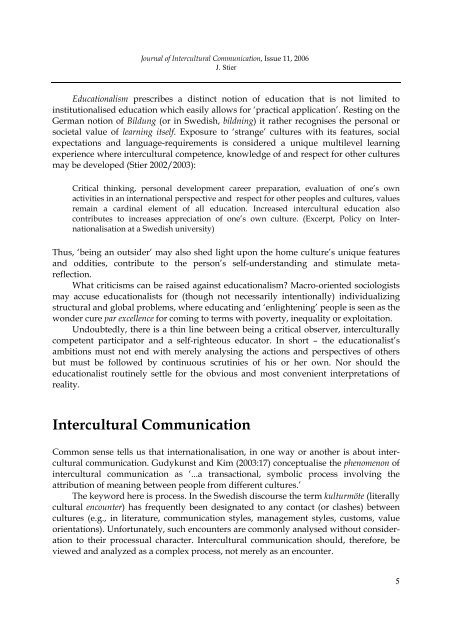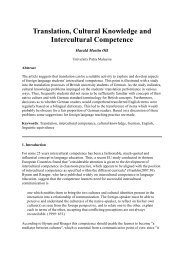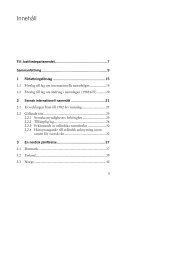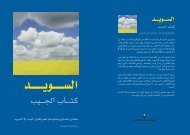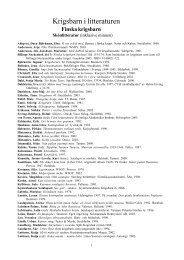Internationalisation, intercultural communication and intercultural ...
Internationalisation, intercultural communication and intercultural ...
Internationalisation, intercultural communication and intercultural ...
You also want an ePaper? Increase the reach of your titles
YUMPU automatically turns print PDFs into web optimized ePapers that Google loves.
Journal of Intercultural Communication, Issue 11, 2006<br />
J. Stier<br />
Educationalism prescribes a distinct notion of education that is not limited to<br />
institutionalised education which easily allows for ‘practical application’. Resting on the<br />
German notion of Bildung (or in Swedish, bildning) it rather recognises the personal or<br />
societal value of learning itself. Exposure to ‘strange’ cultures with its features, social<br />
expectations <strong>and</strong> language-requirements is considered a unique multilevel learning<br />
experience where <strong>intercultural</strong> competence, knowledge of <strong>and</strong> respect for other cultures<br />
may be developed (Stier 2002/2003):<br />
Critical thinking, personal development career preparation, evaluation of one’s own<br />
activities in an international perspective <strong>and</strong> respect for other peoples <strong>and</strong> cultures, values<br />
remain a cardinal element of all education. Increased <strong>intercultural</strong> education also<br />
contributes to increases appreciation of one’s own culture. (Excerpt, Policy on <strong>Internationalisation</strong><br />
at a Swedish university)<br />
Thus, ‘being an outsider’ may also shed light upon the home culture’s unique features<br />
<strong>and</strong> oddities, contribute to the person’s self-underst<strong>and</strong>ing <strong>and</strong> stimulate metareflection.<br />
What criticisms can be raised against educationalism? Macro-oriented sociologists<br />
may accuse educationalists for (though not necessarily intentionally) individualizing<br />
structural <strong>and</strong> global problems, where educating <strong>and</strong> ‘enlightening’ people is seen as the<br />
wonder cure par excellence for coming to terms with poverty, inequality or exploitation.<br />
Undoubtedly, there is a thin line between being a critical observer, <strong>intercultural</strong>ly<br />
competent participator <strong>and</strong> a self-righteous educator. In short – the educationalist’s<br />
ambitions must not end with merely analysing the actions <strong>and</strong> perspectives of others<br />
but must be followed by continuous scrutinies of his or her own. Nor should the<br />
educationalist routinely settle for the obvious <strong>and</strong> most convenient interpretations of<br />
reality.<br />
Intercultural Communication<br />
Common sense tells us that internationalisation, in one way or another is about <strong>intercultural</strong><br />
<strong>communication</strong>. Gudykunst <strong>and</strong> Kim (2003:17) conceptualise the phenomenon of<br />
<strong>intercultural</strong> <strong>communication</strong> as ‘...a transactional, symbolic process involving the<br />
attribution of meaning between people from different cultures.’<br />
The keyword here is process. In the Swedish discourse the term kulturmöte (literally<br />
cultural encounter) has frequently been designated to any contact (or clashes) between<br />
cultures (e.g., in literature, <strong>communication</strong> styles, management styles, customs, value<br />
orientations). Unfortunately, such encounters are commonly analysed without consideration<br />
to their processual character. Intercultural <strong>communication</strong> should, therefore, be<br />
viewed <strong>and</strong> analyzed as a complex process, not merely as an encounter.<br />
5


